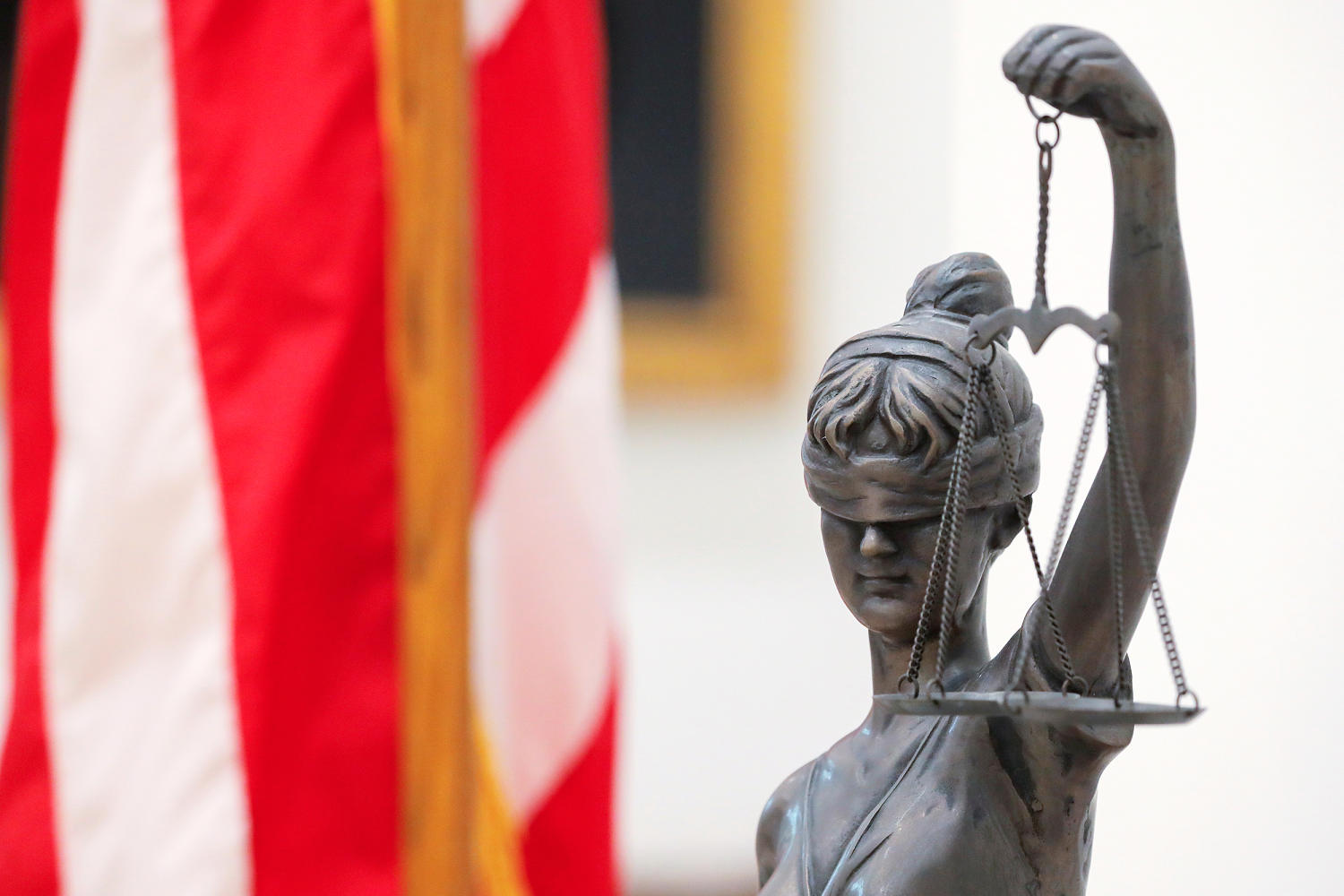
Eleven attorneys at major LGBTQ rights groups and law firms engaged in impermissible judge-shopping to steer litigation challenging Alabama’s ban on gender-affirming medical care for transgender youth away from a conservative judge, a three-judge panel concluded in a newly unsealed report.
U.S. District Judge Liles Burke, an appointee of Republican former President Donald Trump in Montgomery, unsealed the report on Tuesday and directed a group of attorneys and plaintiffs in the litigation to explain why he should not sanction them.
The 50-page report was prompted by Burke’s concerns that the lawyers had dropped two separate cases over the Republican-led state’s law after they were assigned to him, only to announce they planned to re-file a challenge.
The panel’s report, by three judges from each of Alabama’s district courts tasked with investigating the matter, concluded the lawyers “purposefully attempted to circumvent the random case assignment procedures” for the U.S. District Courts for the Northern and Middle Districts of Alabama.
It said they did so because they viewed Burke, a conservative judge, as a “bad draw” who likely would rule against them. He did not, however, and enjoined the law’s enforcement, though the 11th U.S. Circuit Court of Appeals reinstated it in August.
The lawyers include LGBTQ rights advocates such as Carl Charles, who recently left Lambda Legal to join the U.S. Department of Justice; James Esseks of the American Civil Liberties Union; Jennifer Levi of GLAD; and Shannon Minter and Asaf Orr of the National Center for Lesbian Rights.
Others worked at three law firms who litigated the cases pro bono: Melody Eagan and Jeffrey Doss of Lightfoot, Franklin & White; Michael Shortnacy, who was at King & Spalding and is now with Shook, Hardy & Bacon; and Kathleen Hartnett of Cooley LLP.
Those attorneys face potential sanctions that range from suspension from practicing in the Northern and Middle Districts of Alabama to monetary sanctions. Burke ordered the lawyers to appear at hearings in May to address the issue.
He said their misconduct implicated prohibitions in courts against “attempts to manipulate or circumvent the random assignment of judges,” and that a court could sanction lawyers for bad-faith conduct that “abuses the judicial process.”
The ACLU in a statement said it was “deeply concerned about the chilling effect this order may have on future attempts to litigate civil rights claims in Alabama and beyond.”
The National Center for Lesbian Rights said it holds itself “to the highest ethical standards,” and GLAD said it was “extremely proud of our attorneys and the critical work that they do.” Jennifer Pizer, Lambda Legal’s chief operating officer, said it disagrees with the panel’s characterization of the events and stands behind its attorneys.
Lightfoot said it was “confident that our attorneys acted in good faith and with no intent to violate any law, rule, or established case law,” and Cooley said its attorneys “carried out their responsibilities appropriately and acted with integrity in this matter.”
The other lawyers did not respond to requests for comment.
Burke made the report public a week after the U.S. Judicial Conference adopted a new, discretionary policy aimed at deterring judge shopping by having cases challenging state or federal laws be assigned a judge throughout a district, not just within a smaller division, or courthouse, where it was filed.
According to the report, on April 8, 2022, plaintiffs represented by the National Center for Lesbian Rights, GLAD, and other groups sued in the Northern District to challenge a ban Republican Governor Kay Ivey signed into law that month.
A separate lawsuit was filed in Alabama’s Middle District on April 11 by lawyers at the ACLU and other groups.
The ACLU sought to have the case assigned to U.S. District Judge Myron Thompson, an appointee of Democratic former President Jimmy Carter, by marking it as “related” to a closed 2018 case in which he had ruled in favor of transgender rights.
The case was instead assigned to another judge who, with the eventual consent of the parties, transferred it to the Northern District, where the first case had been assigned to U.S. District Judge Annemarie Axon.
Both cases were then transferred to Burke, causing surprise and “panic” among the plaintiffs’ lawyers, according to the report, by U.S. District Judges W. Keith Watkins, R. David Proctor and Jeffrey Beaverstock, all appointees of Republican presidents.
Both legal teams voluntarily dismissed their cases. NCLR, GLAD and co-counsel then filed a new one in the Middle District with new plaintiffs to avoid the appearance of judge shopping and avoid Burke, the report said.
The case was instead, at the direction of U.S. District Judge R. Austin Huffaker, reassigned to Burke.
The case is Boe v. Marshall, U.S. District Court for the Middle District of Alabama, No. 22-cv-184.
